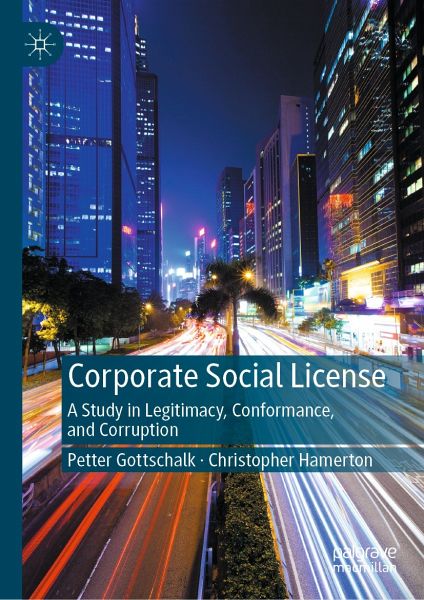This book makes a distinctive and innovative contribution to the study of white-collar and corporate crime through detailed examination of the use, affect, and violation of the corporate social license - a concept frequently extended to a license to operate. Whilst discrete aspects of corporate social responsibility have found their way into the discourse on business deviance and crime, no single book to date has provided a detailed exploration of social licence through a criminological lens. Here, using an interdisciplinary focus which includes illustrative case-studies and large-scale original fieldwork, Gottschalk and Hamerton explore European, North American, Asian, and global perspectives to identify, position, and reveal the impact of the social license on contemporary conceptions of white-collar and corporate deviance and crime. Corporate Social License: A Study in Legitimacy, Conformance, and Corruption will be of interest to scholars of criminology, law, businessmanagement, and sociology along with professionals within allied fields.
¿Petter Gottschalk is Professor in the Department of Leadership and Organizational behaviour at BI Norwegian Business School, Norway.
Christopher Hamerton is Deputy Director of the Institute of Criminal Justice Research in the School of Economic, Social and Political Sciences at the University of Southampton, United Kingdom.
¿Petter Gottschalk is Professor in the Department of Leadership and Organizational behaviour at BI Norwegian Business School, Norway.
Christopher Hamerton is Deputy Director of the Institute of Criminal Justice Research in the School of Economic, Social and Political Sciences at the University of Southampton, United Kingdom.
Dieser Download kann aus rechtlichen Gründen nur mit Rechnungsadresse in A, B, BG, CY, CZ, D, DK, EW, E, FIN, F, GR, HR, H, IRL, I, LT, L, LR, M, NL, PL, P, R, S, SLO, SK ausgeliefert werden.









